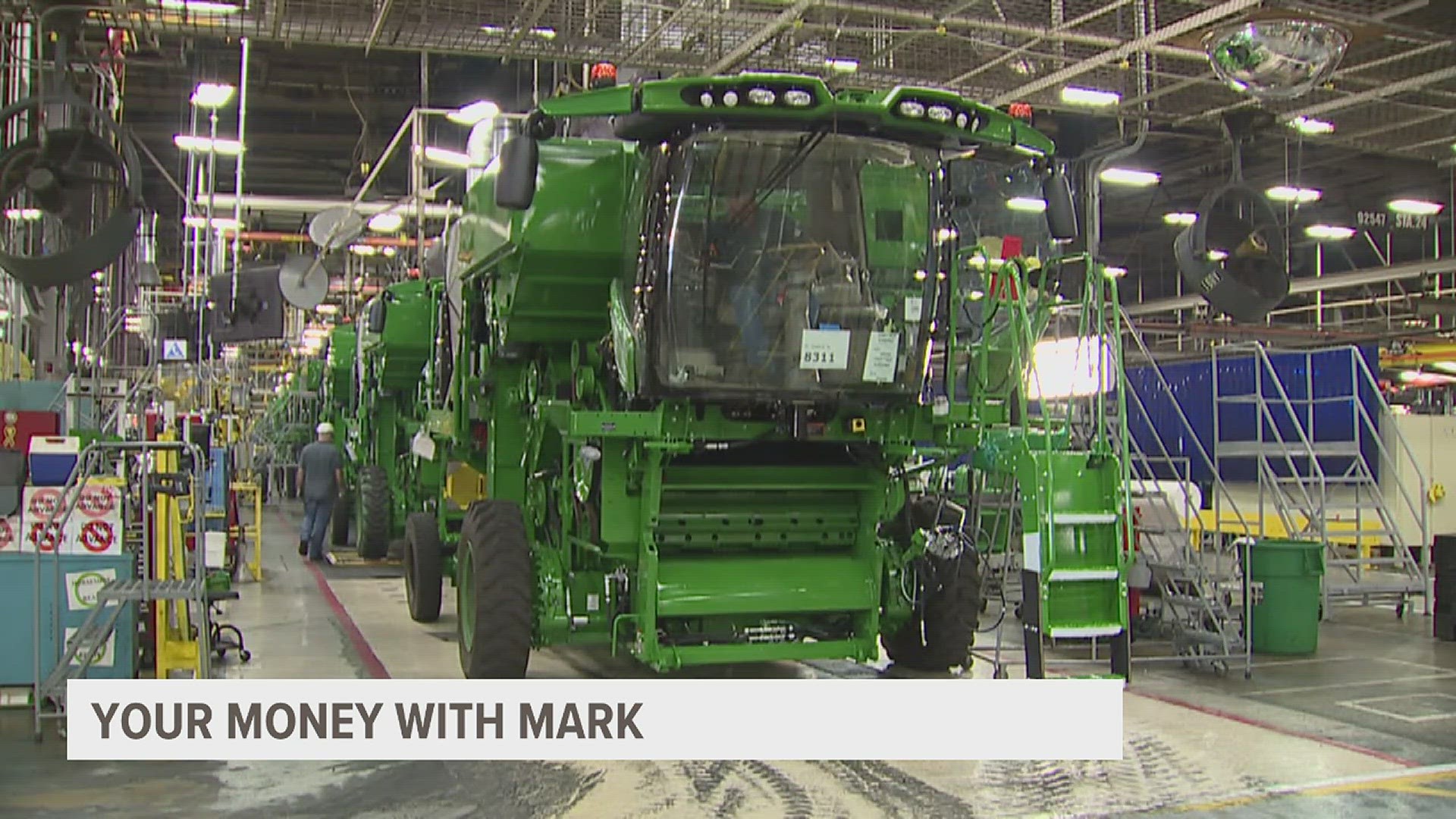MOLINE, Ill. — On Friday, Deere and Company released it's latest quarterly earnings report. In the May through July quarter, Deere reported a net income of nearly $3 billion, up 58% over the past year. Deere and Company also reporting net sales rose 12% to $14.3 billion. Despite all of the positive financial news for Deere and Company, the company's stock fell by more than 5% on Friday.
Mark Grywacheski with the Quad Cities Investment Group joined Good Morning Quad Cities to talk more about the news.
Devin: With the strong third quarter earnings reported on Friday, why did John Deere’s stock fall by more than 5% on Friday?
Mark: You look at John Deere’s latest financials and John Deere just had a fantastic third quarter. It’s net income was 58% higher than it was last year. Moreover, John Deere also raised its guidance/outlook for its full-year performance.
I spoke to a number of former professional trading colleagues of mine on Wall Street, and they argue that Wall Street has started taking a much more pessimistic outlook for the rest of the year. Within this latest earnings season, there’s been a number of big-name companies that reported stellar financial results but raised concerns on the future health of the economy: Qualcomm, CVS Pharmacy, Apple, Microsoft, Target, Johnson & Johnson, etc. etc. And with so many companies raising cautionary flags over the second half of the year, is there any industry or sector of the economy (including agriculture) that will be shielded from this potential fallout?
Devin: Last week the US Census Bureau reported that retail sales rose by 0.7% in July and have risen by 3.2% over the past 12 months. With concerns of a potential recession, why do you think consumer spending remains so strong?
Mark: There’s a lot of concerns on state of the US economy and then you add-on high inflation and rising interest rates. But one aspect of the economy that’s remained quite resilient is the labor market. The national unemployment rate is at 3.5% and there’s currently about 9.6 million unfilled job openings across the nation. This conveys that there’s still a strong demand by employers for qualified workers. When jobs are plentiful and people feel confident in their job security, they tend to be much more willing to open up their pocketbooks and spend their money.
Devin: Do you think this strength we’re seeing in consumer spending will last?
Mark: So far this year, the labor market has remained quite resilient, but we are starting to see some initial cracks form. The number of new jobs being added has been steadily declining.
Another concern is how much of the consumer spending over the past 1-2 years has been funded. To help pay the cost of rising prices, consumers have been forced to pull money from their savings and retirement account. They’ve also take on a lot more debt. Household debt is now at a record high. Within that household debt is a record-high $1.03T in credit card debt- the 1st time ever the level of credit card debt has breached the $1T mark.
Watch more news, weather and sports on News 8's YouTube channel

